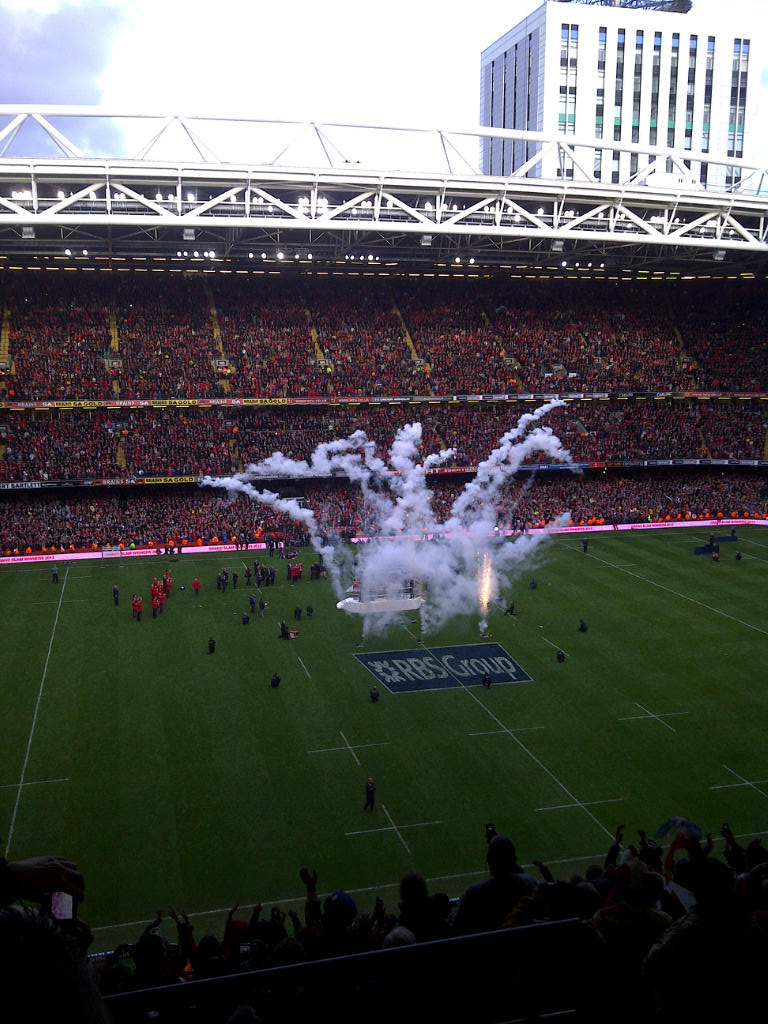Wales played out the last few moments of the game competently and patiently, making sure possession was secured without attempting to embark on anything spectacular as Hymns and Arias reverberated around the Millennium Stadium.
Wales hardly offered much in attack, but barely had to, just about weathering any occasional outbreaks of French fight (helped by a bizarre decision late on by the usually imperious Imanol Harinordoquy not to pass out wide when a try was surely on.
But as throughout this Six Nations, Wales’s defence carried them to victory. The back row of Toby Faletau captain Sam Warburton – who again left the field at the interval, this time with a shoulder problem – and particularly man of the match (and possibly the tournament) Dan Lydiate were again immense.
Lydiate’s tackle on Wesley Fofana, when the Welshman, in his preferred style, went super-low in order to prevent the attacker gaining any momentum, led to Leigh Halfpenny’s 52-metre penalty.
The flanker was slow to get up, exhausted after another huge effort. That he was given the match accolade was no surprise, his workrate summing up the commitment made by the whole squad.
Under Shaun Edwards’s expert tutelage, Wales conceded just three tries and 58 points all tournament, the lowest points total against in the Six Nations since England in 2003.
And while the back row was tackling everything which moved, the scrums were steady and Wales’s lineout was not quite as bad as it has recently been.
It was the first time since England’s Five Nations success in 1996 – albeit when they only scored three tries in their four games – when a team has won the championship without a forward scoring a single point.
Not that the forwards weren’t an integral part of a victorious Welsh side this time around – indeed, every member of the squad played a vital role in Warren Gatland’s second Slam as Wales coach.
And with the youth throughout the side – particularly among the backs – all the signs are positive for the Principality.


No comments:
Post a Comment